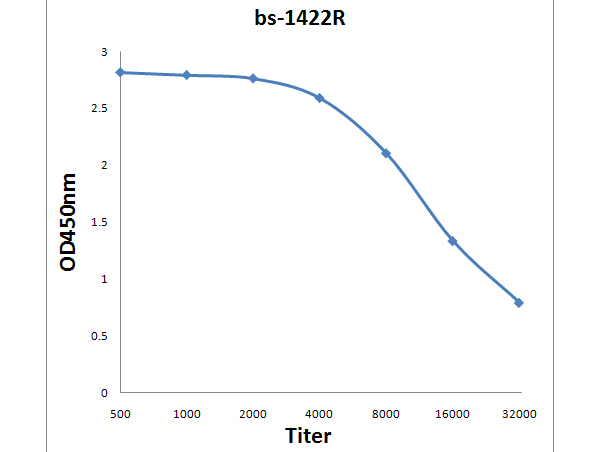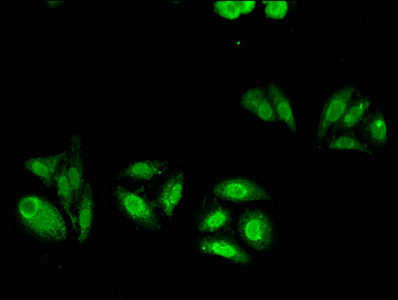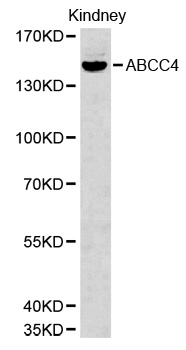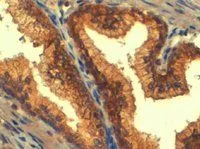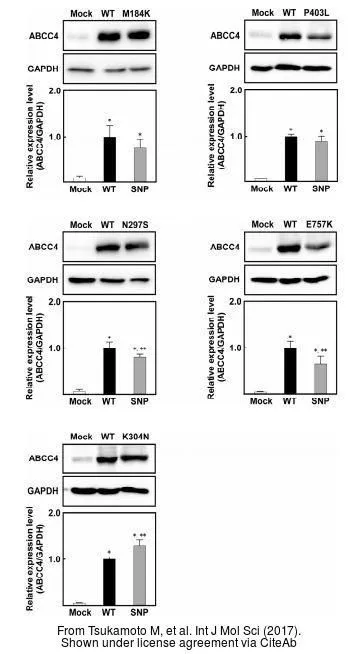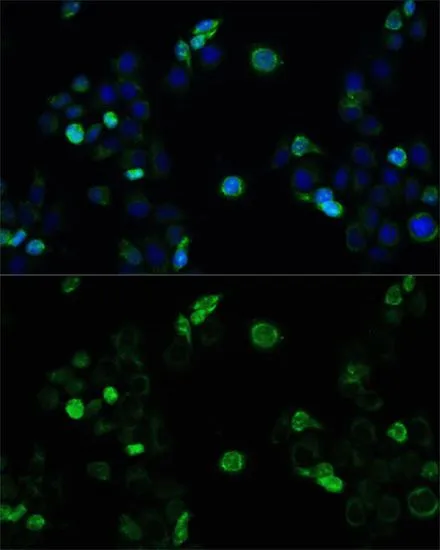MRP4 antibody [M4I-80]
GTX15598
ApplicationsImmunoFluorescence, Western Blot, ImmunoCytoChemistry, ImmunoHistoChemistry, ImmunoHistoChemistry Frozen
Product group Antibodies
ReactivityHuman, Mouse
TargetABCC4
Overview
- SupplierGeneTex
- Product NameMRP4 antibody [M4I-80]
- Delivery Days Customer9
- Application Supplier NoteICC: Use at a dilution of 1/20 - 1/50. IHC-Fr: Use at a dilution of 1/20. WB: Use at a dilution of 1/20 - 1/50. Predicted molecular weight: 150 kDa. Optimal dilutions/concentrations should be determined by the end user.
- ApplicationsImmunoFluorescence, Western Blot, ImmunoCytoChemistry, ImmunoHistoChemistry, ImmunoHistoChemistry Frozen
- CertificationResearch Use Only
- ClonalityMonoclonal
- Clone IDM4I-80
- Concentration0.2 mg/ml
- ConjugateUnconjugated
- Gene ID10257
- Target nameABCC4
- Target descriptionATP binding cassette subfamily C member 4 (PEL blood group)
- Target synonymsMOAT-B, MOATB, MRP4, ATP-binding cassette sub-family C member 4, MRP/cMOAT-related ABC transporter, bA464I2.1 (ATP-binding cassette, sub-family C (CFTR/MRP), member 4), canalicular multispecific organic anion transporter (ABC superfamily), multi-specific organic anion transporter B, multidrug resistance-associated protein 4
- HostRat
- IsotypeIgG2a
- Protein IDO15439
- Protein NameATP-binding cassette sub-family C member 4
- Scientific DescriptionThe protein encoded by this gene is a member of the superfamily of ATP-binding cassette (ABC) transporters. ABC proteins transport various molecules across extra- and intra-cellular membranes. ABC genes are divided into seven distinct subfamilies (ABC1, MDR/TAP, MRP, ALD, OABP, GCN20, White). This protein is a member of the MRP subfamily which is involved in multi-drug resistance. This family member plays a role in cellular detoxification as a pump for its substrate, organic anions. It may also function in prostaglandin-mediated cAMP signaling in ciliogenesis. Alternative splicing of this gene results in multiple transcript variants. [provided by RefSeq, Sep 2014]
- ReactivityHuman, Mouse
- Storage Instruction-20°C or -80°C,2°C to 8°C
- UNSPSC12352203

